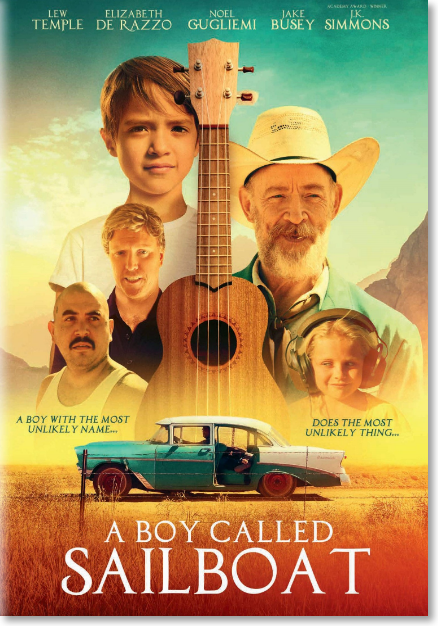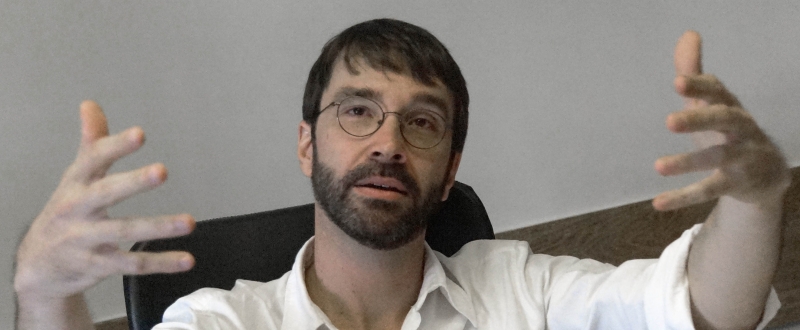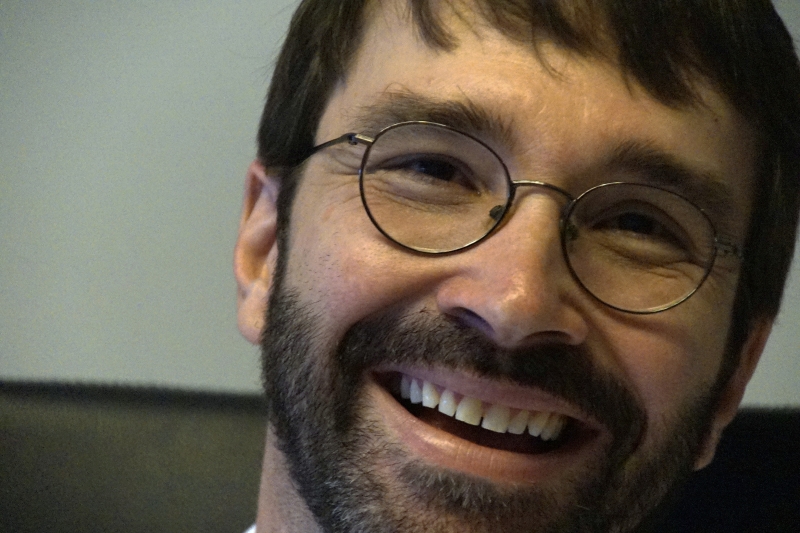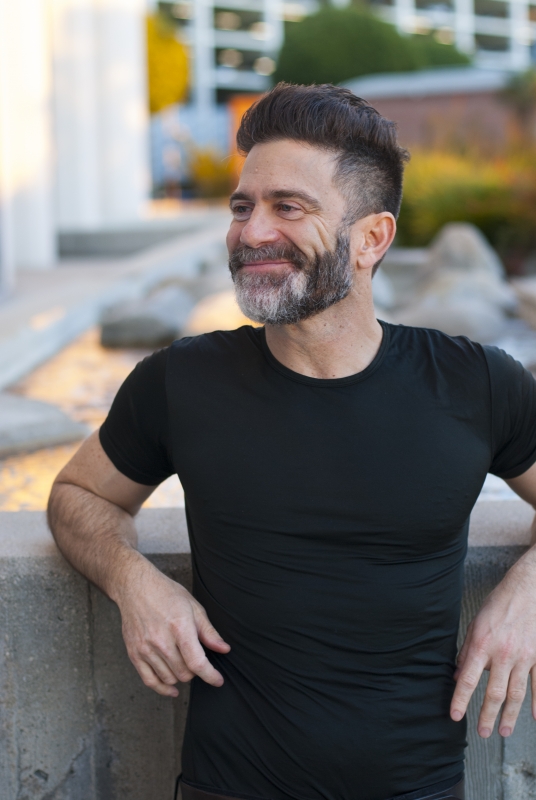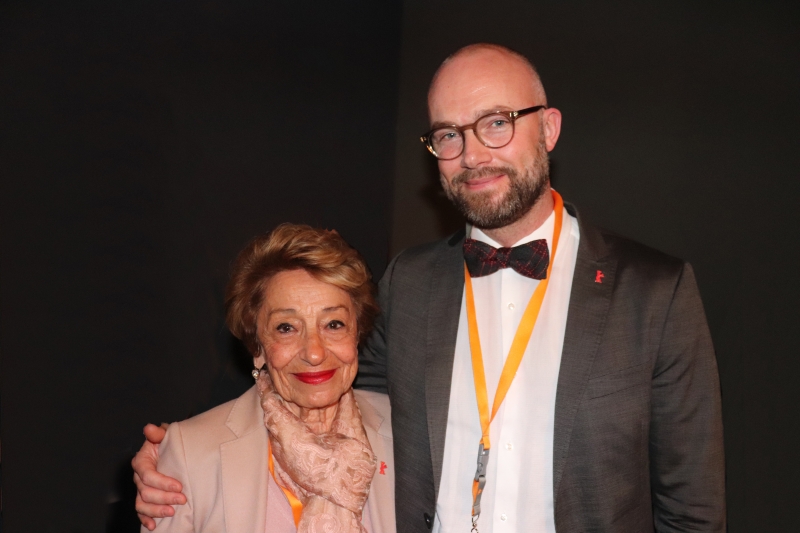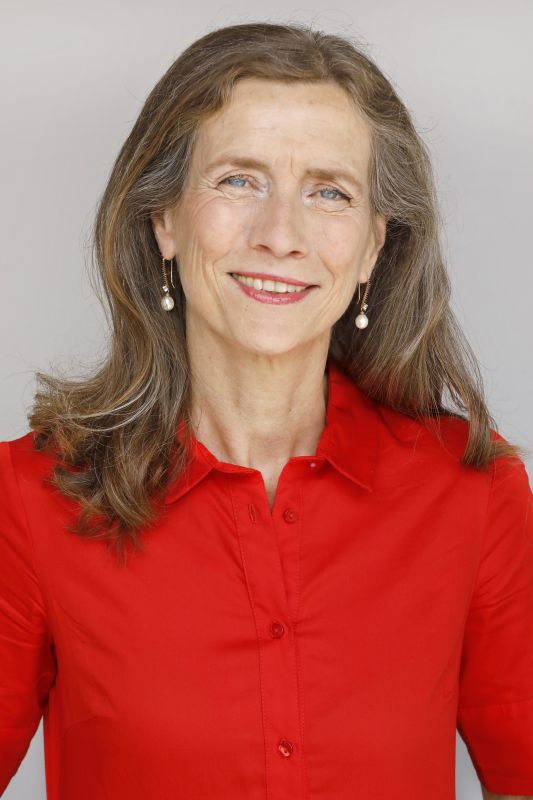|
|
||
|
Pro Tools
FILMFESTIVALS | 24/7 world wide coverageWelcome ! Enjoy the best of both worlds: Film & Festival News, exploring the best of the film festivals community. Launched in 1995, relentlessly connecting films to festivals, documenting and promoting festivals worldwide. Working on an upgrade soon. For collaboration, editorial contributions, or publicity, please send us an email here. User login |
Berlin 2011: Wieland Speck on Queer Films and the BerlinaleWieland Speck who is in charge of the Berlinale's Panorama has been heading the TEDDY program and awards for the last 25 years and transformed it into the world's most important platform for lesbian, gay, bisexual and transsexual cinema (LGBT). The Berlinale was the first major international film festival which made a queer film program part of its official repertoire. Films with these themes account now for about 20% of all production in the Berlinale program. The Teddy program has been providing programming assistance to the about 150 directors of LGBT festivals who attended the 2011 Berlinale and established queer film festivals in Poland Hungary and Russia and is now involved in efforts to do so in Indonesia. There is no question that the Teddy program has made a significant contribution under Speck's direction to the acceptance of the queer way of life.
Claus Mueller: You have now been in charge of the Panorama for 10 years and of the TEDDY for 25 years. What do you consider your most important changes? Wieland Speck: The changes were not as important as was reaching our goals. From day one we have been attempting to reorient main stream media towards the teddy and queer films. Today we can say we reached that goal in the context of the Berlinale. CM: What is the difference between what you screened 25 years ago and what you show today? WS: Well, as you know we did eight years of informal screenings of queer films before the TEDDY was started. In the mid eighties we had many documentaries dealing with the subject of AIDS and before that period many films dealt with reflections on sexuality, alternative life styles, and related issues. These themes came out of the spirit of the seventies, for example lesbians setting up their lives independent of men. CM: When you program the Teddy today do you observe a shift of themes? WS: Evidently, as influenced by the development of society themes shift and you have a zeitgeist thing happening. In queer cinema normality has become part of the queer normality As long as you have the queer demands for marriage and adoptions you are actually facing a demand for normality and the closer we get to normality we tend to believe we are normal. That is not a good thing for all those activists who all their lives identified themselves as being not normal and deriving their energy from that fact. So you have a subculture; weakness coming with emancipation and normality, though normality in fact will never be totally achieved because we are a queer minority in a democratic world which is driven by the majority. CM: If emancipation and acceptance, rather than just toleration as Kosslick suggested last night, is achieved, would that entail a decline in mission driven queer films? WS: In those countries where normality is possible, yes, though it is only a small number of countries. Of course these are the countries which produce a lot of films. So, it looks as if there is a decline [in mission driven films] but it is not totally reflected in reality since most countries do not have the situation of emancipation. CM: Thus the TEDDY has an external mission? WS: Correct CM: In 25 years of programming TEDDY have you encountered any problems you would have loved to resolve but could not? WS: Not really. The only exception to this would be the problem of getting films from countries where it is most difficult to have a queer life and if you do get a film another problems is the directors cannot travel. But there are exceptions. For example, the film by Mitra Faharani, from Iran which we had ten years ago was a documentary on transsexuals in Iran [Just a Women]. This was an eye opener as to what was happening in Iran. The bottom line was if you are gay and cannot hide it you have no chance to survive and thus need to go to a clinic to have an operation. That is, you get castrated - a reality that still persists today, not just in Iran but in many other self righteous Islamic countries. There they are living lies, like temporary marriage as a cover for prostitution. So, there you have all the elements. Yet the imagery is changing. As compared to twenty years ago, we have access through the internet to divergent life styles, sharing central information and observing things that could not be shared in earlier times. CM: It has been suggested that about 20% of the films at the Berlinale have gay or queer content. Also other data show that about half of the audience for gay films at the berlinale is straight. Is that a shift compared 25 years ago and did you build that audience? WS: Yes, I would think so. Hollywood is always like a thermometer on societal change. If they come out with a lesbian story that shows parenting [The Kids are All Right] that is even in the run for an Oscars, the film that won last year's TEDDY, than you know that they detected in the population that you can present such a theme now. It basically means it needs subcultural work for many years before it becomes part of the general culture and Hollywood is ready to present that theme, though still looking avant-guarde. CM: Thus the sub culture has perked up? WS: Definitely. Any majority at one point is happy to support at one point a minority specifically if this minority has been treated badly for long periods of time, but the minority may often feel uneasy about this acceptance. CM: If there is greater acceptance over the next years how is it going to affect queer films? WS: The films will be above to have more diversified themes, more insight and more depth. Subtlety rather than placative approaches will be more prominent. Thus certainly will be true for West European countries whereas in East Europe, even if they are member of the European Union or prospective members, the situation differs with respect to the rights and presentation of gay groups. Most of these countries are homophobic. CM: To follow up, we observe a right wing drift in Western societies, an increase in xenophobia, the rise and influence of conservative parties, a decrease in the tolerance of others if they are different. Do you think that this will eventually spill over to impact relations with the gay minority? Thus less acceptance and toleration? WS: That is a very difficult to say. In West European countries societies have slowly but surely come to understand that gays and lesbians are the children of heterosexual couples. This is a major step for societies to understand though it is a simple basic fact. Thus queers used to be siren as coming from the outside and should not be there as outsiders but once we accept that they have grown up on the inside it is much easier to accept CM: We discussed last year the rapid expansion of film festivals which by now should total about 6000 worldwide. Any comments how this growth impacts you? WS: It does not affect the core of our business since we are still the first in the food chain so to speak. Like Cannes and Venice we are the first to select from the large number of films, thus play an important selective function. It will impact us in the long run since all festivals are now part of the exhibition route for many films. CM: Are you suggesting that film festivals have really become a new market for film makers? WS: Yes, that is how I see it. It also provides small film festivals with a reason and means to survive. Distributors also have to see that close cooperation with film festivals is important for their business and not to look at these festivals as a nuisance. Thus festivals permit you to build an audience CM: How does the large number of films play into this? Recall Beki Probst's observation that too many films are being produced. WS: She is certainly right in terms of how many films the European Film Market can digest [in 2011 the EFM program listed 741] At the same time look at the many new film festivals you mentioned and the many platforms provided by the internet. Thus for many titles the respective audiences become small and smaller. CM: In Germany you have, as in other countries a decline of the theatrical distribution of productions [supplemented by a decline of television use]. So the question is can new festivals and platforms compensate for the lost revenue of the old distribution platforms? WS: Certainly there is a real problem and new income model should be articulated. It is compounded by the ever growing number of films which are produced. It hits us since we need more and more pre-selection groups to digest and filter out the large number of films. CM: Do we have to modify the view that the increase in volume is not accompanied by an increase in quality? WS: Well we have to modify this perspective. As we discussed last year there was a tendency towards a new kind of film which the industry has not realized it exists, a new kind of independent cinema. Ironically at the European Film Market, these kind of new films scored best. The single group that had the best sales consisted of nontraditional titles, what we used to call the art cinema. Evidently the market people are driven by money and money is conservative. But we proved in our programs and the development of the film market that new productions and perspective are now setting the stage. CM: Thanks for your insights
Claus Mueller 12.03.2011 | Berlin's blog Cat. : Berlin International Film Festival Cannes Cannes Claus Mueller Coming out Contact Details East Europe energy Entertainment Entertainment European Union Fest directors filmexchange@gmail.com food Gender Germany Indonesia Iran LGBT Major Mitra Faharani New Queer Cinema Oscars Person Email Address Person Location Queer Russia Sexual orientation Social Issues Social Issues Technology Technology the 2011 Berlinale and established queer film festivals the TEDDY program and awards Venice Wieland Speck
|
LinksThe Bulletin Board > The Bulletin Board Blog Following News Interview with EFM (Berlin) Director
Interview with IFTA Chairman (AFM)
Interview with Cannes Marche du Film Director
Filmfestivals.com dailies live coverage from > Live from India
Useful links for the indies: > Big files transfer
+ SUBSCRIBE to the weekly Newsletter Deals+ Special offers and discounts from filmfestivals.com Selected fun offers
> Bonus Casino
User imagesAbout Berlin Chatelin Bruno Chatelin Bruno
Berlin 2019: The dailies from the Berlin Film Festival brought to you by our team of festival ambassadors. Vanessa McMahon, Alex Deleon, Laurie Gordon, Lindsay Bellinger and Bruno Chatelin...
|



















